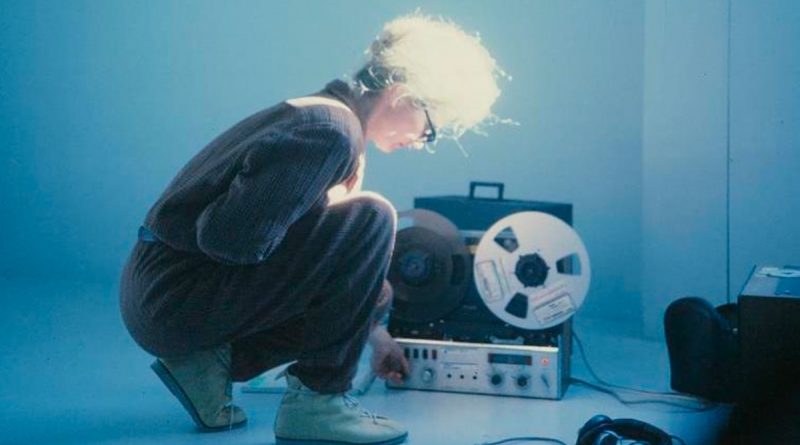
At the very beginning of writer/director Lisa Rovner’s documentary Sisters With Transistors, narrator and famed avant-garde composer Laurie Anderson explains, “This is the story of women who hear music in their heads….of dreams enabled by technology”. The film chronologically delves into the work of some of the most visionary pioneers in the history of electronic music, who also happen to be women, which of course means their contributions have remained largely unsung. Over the roughly hour and a half running time, Rovner proves these women essential in terms of their importance to expanding the boundaries and definition of what music can be. That she does so while maintaining the perfect balance of the intellectual and the emotional, through chosen interviews and footage, allows Sisters With Transistors to transcend so many merely informational documentaries to become essential viewing for all feminists and lovers of the history of music.
The first subject is perhaps the most well-known within music circles, Clara Rockmore. Rockmore was a classically trained violin prodigy and virtuoso who, after meeting the inventor of one of the first electronic instruments, the theremin, went on to unparalleled mastery of it, touring all over the world. This was the first time electronic music was received by a concert hall audience, and though the public started out dismissing the theremin as lesser and artificial, her skill and passion with the instrument was impossible to ignore, winning them over. Composer, inventor, and BBC sound engineer Daphne Oram leveraged ongoing developments in audio technology to create new ways of making sound with electronics. She co-founded the highly influential BBC Radiophonic Workshop, and was a leading pioneer of ‘musique concrète, which uses recorded sounds as raw materials for composition. Also highlighted is the work of Bebe Barron. She and her husband Louis wrote the first electronic film score for Forbidden Planet. Together, they created the foundation for modern multi-track recording. Composer and humanitarian Pauline Oliveros shifted perception of electronic music and music in general by creating compositions meant as a meditative expression of self, and as a consideration of both the individual’s and humankind’s place in nature and in time. She believed and still believes listening is healing, and developed the idea of ‘deep listening’, which is the form of listening that includes everything in our daily lives, from bird calls, car engines, and toilets flushing, to things like the hum of an air conditioner and our own thoughts. This composer represents the perfect expression of what Rovner herself says of all the subjects in the film. Oliveros ‘transformed the very terms of musical thought’. There are segments on Delia Derbyshire, who has been more in the spotlight lately because of several documentaries focused specifically on her, as well as Maryanne Amacher, Eliane Radigue, Susanne Ciani, and Laurie Spiegel. All these women have made unique and far-reaching contributions to electronic music, with lives that could each easily fill 90 minutes of screen time.
For the entire review go to AWFJ.org HERE.



